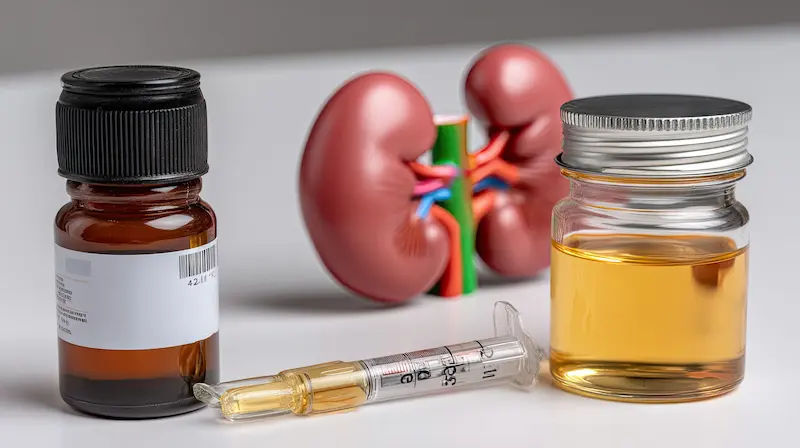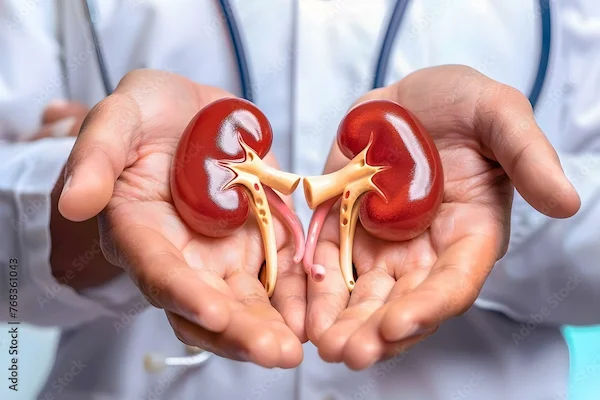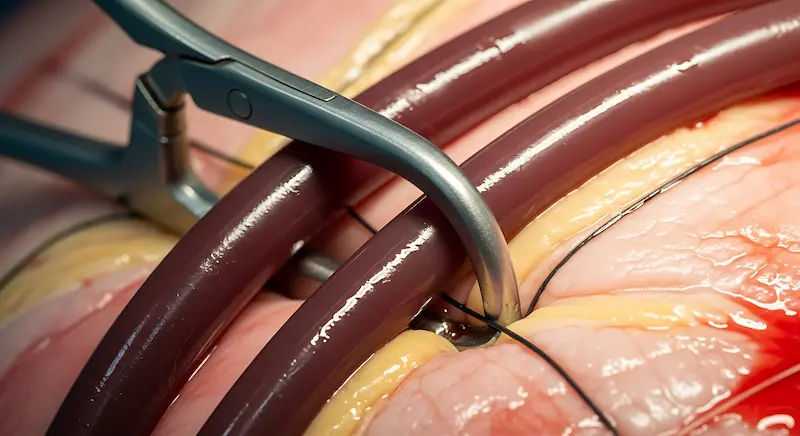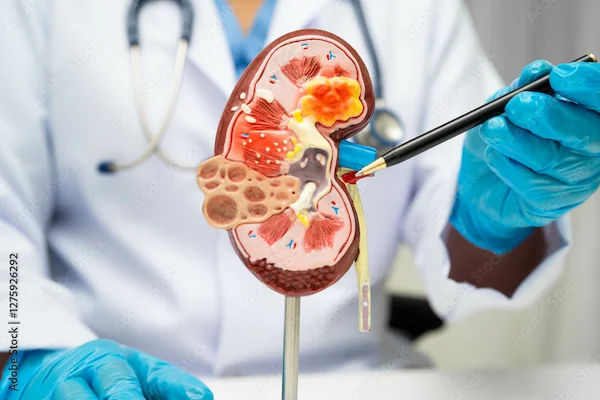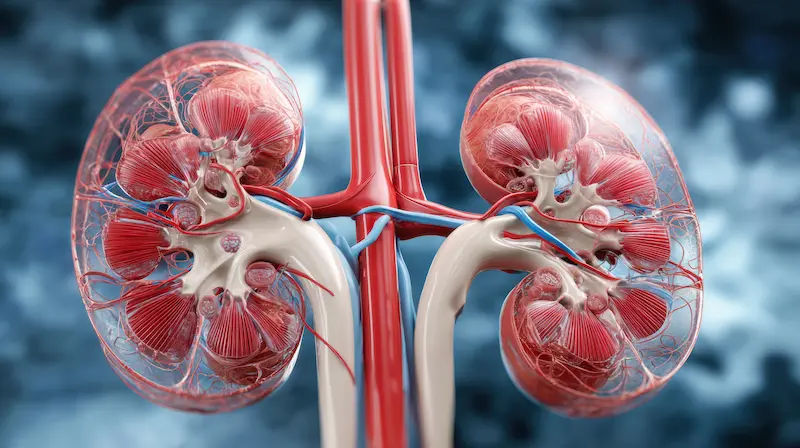Your Kidneys & Creatinine: The Ultimate Guide to Monitoring Kidney Health
Know about the kidney health, role of creatinine, its normal range, how to maintain healthy levels, preventive action for good kidneys and tests for knowing kidney performance.

Written by Dr. Mohammed Kamran
Reviewed by Dr. Shaik Abdul Kalam MD (Physician)
Last updated on 13th Jan, 2026

Introduction
Your kidneys are the unsung heroes of your body, working tirelessly around the clock to filter waste, balance fluids, and regulate blood pressure. But how do you know if these vital organs are functioning optimally? The answer often lies in a simple yet critical biomarker: creatinine. Monitoring your creatinine level is one of the most effective ways to monitor your kidney health and catch potential issues early. This guide is designed to empower you with knowledge. We'll break down what creatinine is, why it matters, and how to interpret your test results. You'll learn not just about the numbers, but also about practical, proactive steps you can take to support your kidneys for life.
Why Your Kidneys Are Your Body's Silent Superheroes
Think of your kidneys as your body's sophisticated filtration plant. These two bean-shaped organs, located just below your rib cage, process about 200 quarts of blood daily to sift out about 2 quarts of waste and extra water, which become urine. But their job description is far more extensive than just waste removal. They are central to maintaining your body's delicate internal balance.
The Multi-Tasking Marvels: Key Functions of the Kidneys
Beyond filtration, your kidneys perform several life-sustaining tasks:
* Waste Removal: They filter out toxins and by-products of metabolism, like urea and, crucially, creatinine.
* Fluid and Electrolyte Balance: They ensure your body has the right amount of minerals like sodium, potassium, and phosphorus, which are essential for nerve and muscle function.
* Blood Pressure Regulation: The kidneys produce an enzyme called renin, which helps control blood pressure by managing blood vessel constriction and fluid volume.
* Red Blood Cell Production: They release the hormone erythropoietin, which signals your bone marrow to make red blood cells.
* Bone Health: They activate Vitamin D, which is necessary for calcium absorption and strong bones.
Consult a Urologist for Personalised Advice
When Superheroes Get Tired: Understanding Kidney Stress
The challenge with kidney disease is its "silent" nature. Symptoms often don't appear until significant damage has occurred. This is why relying on symptoms alone is a risky strategy. Factors like long-standing high blood pressure and diabetes are primary culprits that put constant strain on the kidneys' delicate filtering units, called nephrons. When these nephrons are damaged, the kidneys' ability to perform their superhero duties declines, leading to a buildup of waste in the blood.
Creatinine Demystified: The Essential Waste Marker
So, where does creatinine fit into this picture? It serves as a direct indicator of how well your kidneys' filtration system is working.
What Exactly is Creatinine?
Creatinine is a natural waste product generated by your muscles. It comes from the breakdown of a compound called creatine phosphate, which your muscles use for energy. Because muscle mass is relatively constant from day to day, the production of creatinine is fairly steady. This makes it a reliable marker to track.
The Kidney-Creatinine Connection: A Delicate Balance
Under normal circumstances, your kidneys filter creatinine from your blood and excrete it in your urine. The level of creatinine in your blood remains stable because the rate of production matches the rate of removal. However, if kidney function becomes impaired, the filtration process slows down. This causes creatinine to accumulate in the bloodstream, leading to a higher serum creatinine level. Therefore, a rising creatinine level is a primary red flag that your kidneys may not be working at full capacity.
The Kidney Health Check: Tests You Need to Know About
You can't feel your creatinine level, which is why laboratory tests are indispensable. A routine blood test can provide a wealth of information about your renal health.
The Serum Creatinine Test: Your First Clue
The most common test is the serum creatinine test, which measures the amount of creatinine in your blood. It's a simple test that is almost always part of a standard metabolic panel. While it's a powerful tool, doctors rarely rely on it alone because it can be influenced by factors like age, gender, and body size. For instance, a young, muscular man will naturally have a higher normal creatinine level than an elderly woman, even with identical kidney function.
Beyond Creatinine: eGFR, Urine Albumin, and the Full Picture
To get a more accurate assessment, doctors use the creatinine result to calculate the Glomerular Filtration Rate (eGFR). This calculation provides an estimate of how much blood your kidneys filter each minute and is a better indicator of function than creatinine alone. An eGFR below 60 for three months or longer may indicate chronic kidney disease. Another critical test is the Urine Albumin-to-Creatinine Ratio (UACR), which checks for albumin (a type of protein) in the urine. Healthy kidneys keep protein in the blood, so its presence in urine is a sign of damage.
Get Your Symptoms Assessed
Interpreting Your Numbers: What Your Creatinine Level Really Means
Seeing an abnormal value on your report can be alarming, but context is everything.
Normal Creatinine Levels by Age, Gender, and Muscle Mass
Generally accepted normal ranges are:
* For adult men: 0.74 to 1.35 mg/dL
* For adult women: 0.59 to 1.04 mg/dL
These ranges can vary slightly between laboratories. It's essential to discuss your results with a healthcare professional who can interpret them based on your personal profile.
When Levels are High: Potential Causes and Implications
A high creatinine level signals that waste is not being cleared effectively. This can be due to:
Chronic Conditions: Diabetes and high blood pressure are the leading causes.
Acute Kidney Injury (AKI): A sudden drop in function caused by severe dehydration, infection, or medication side effects.
Kidney Obstructions: Issues like kidney stones or an enlarged prostate can block urine flow.
Medications: Certain drugs, like some painkillers (NSAIDs), can affect kidney function.
Don't Panic: Temporary vs. Chronic Elevations
It's crucial to understand that a single high reading doesn't automatically mean you have permanent kidney disease. Temporary spikes can occur due to dehydration, a high-protein meal, or intense exercise. This is why doctors look for persistent elevation over time. If your test results show a consistently high creatinine level, it is vital to consult a doctor. You can easily consult a nephrologist online with Apollo24|7 for a preliminary evaluation and personalised advice.
Proactive Kidney Care: How to Keep Your Creatinine in Check
The best strategy for kidney health is prevention. By adopting healthy habits, you can significantly reduce your risk and support your kidneys' long-term function.
Hydration: The Simplest Kidney Health Monitor
Staying well-hydrated helps your kidneys clear sodium, urea, and toxins from the body. Aim for 2-3 litres of water per day, unless you have a condition that requires fluid restriction. Pale yellow urine is a good indicator of proper hydration.
Diet Do's and Don'ts for Optimal Kidney Function
What you eat directly impacts your kidneys.
Do: Eat a balanced diet rich in fruits, vegetables, and whole grains. Control your sodium intake to manage blood pressure.
Don't (if at risk): Excessive protein intake can put a strain on the kidneys. If you have existing kidney issues, your doctor may recommend a diet for high creatinine that moderates protein, potassium, and phosphorus.
Limit: Processed foods, sugary drinks, and alcohol.
The Role of Exercise and Medication Awareness
Regular physical activity helps control blood pressure and blood sugar levels—two of the biggest risk factors for kidney disease. However, be mindful of extreme exercise that can cause muscle breakdown and temporarily raise creatinine. Also, always use over-the-counter pain medications like NSAIDs (e.g., ibuprofen) as directed, as long-term misuse can harm the kidneys.
Conclusion
Monitoring your creatinine level is more than just reading a number on a lab report; it's an act of proactive self-care. Your kidneys perform a monumental task silently, and by understanding this key biomarker, you give yourself the power to protect them. Remember, knowledge is the first step, but action is what creates lasting health. Start with the simple steps: stay hydrated, eat mindfully, and manage any chronic conditions you may have. If you have concerns about your kidney health or need help interpreting your lab results, booking a consultation with a specialist through Apollo24|7 is a convenient and reliable way to get expert guidance tailored to your needs.
Consult a Urologist for Personalised Advice
Consult a Urologist for Personalised Advice
Dr P K Bagchi
Urologist
10 Years • MBBS, MS (Gen. Surgery) M. Ch. (Urology)
Guwahati
Apollo Clinic Guwahati, Assam, Guwahati

Dr. Ramesh H
Urologist
16 Years • MBBS, MS , Mch( Urology)
Bengaluru
Apollo Clinic, JP nagar, Bengaluru

Dr. Sudhakar G V
Urologist
25 Years • MBBS, MS(Gen.Surgery), DNB Urology
Bengaluru
Apollo Clinic, JP nagar, Bengaluru

Dr. Pavan Kumar S K
Urologist
11 Years • MBBS, MS , Mch( Urology) DNB (Urology)
Bengaluru
Apollo Clinic, JP nagar, Bengaluru

Dr. Prabir Basu
Urologist
19 Years • MBBS, MS General Surgery, DNB Genito-Urinary Surgery
Jodhpur Park
Dr. Prabir Basu urology clinic, Jodhpur Park
(200+ Patients)
More articles from Kidney Disease
Frequently Asked Questions
1. What is the main difference between serum creatinine and eGFR?
Serum creatinine is the direct measurement of the waste product in your blood. eGFR (estimated Glomerular Filtration Rate) is a calculated value that uses your creatinine level, along with your age, sex, and sometimes race, to estimate your actual kidney function. Doctors often consider eGFR a more accurate reflection of how well your kidneys are working.
2. Can I lower my high creatinine level naturally?
It depends on the cause. If the elevation is due to dehydration or lifestyle factors, increasing fluid intake, reducing protein consumption, and avoiding intense exercise may help. However, if high creatinine is due to chronic kidney disease, these measures may not reverse the damage, and medical management is essential. Always consult a doctor before making significant changes.
3. What are the early warning signs of kidney disease?
Early kidney disease is often asymptomatic. However, later signs can include fatigue, difficulty concentrating, poor appetite, trouble sleeping, swollen feet/ankles, puffy eyes, dry skin, and increased need to urinate, especially at night.
4. How often should I get my creatinine level checked?
If you have no risk factors, a check-up during your annual physical is sufficient. If you have diabetes, high blood pressure, heart disease, or a family history of kidney failure, your doctor may recommend testing every 6 to 12 months.
5. Is a slightly low creatinine level a cause for concern?
A low creatinine level is usually not a concern for kidney health. It is more commonly associated with low muscle mass, which can be seen in older adults, individuals with malnutrition, or those with certain muscular conditions.

